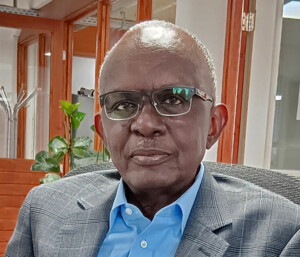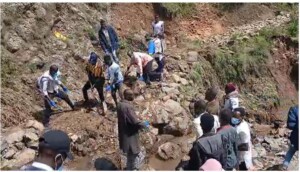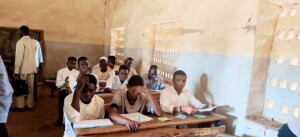Hemeti: Hope for swift resolution to Abyei security problem
Deputy Chairman of Sudan’s Sovereign Council, Lt Gen Mohamed Hamdan ‘Hemeti’ and Tut Galuak, Advisor to the South Sudanese president for Security Affairs have discussed the recent violence and security deterioration in Abyei, the disputed area between Sudan and South Sudan.
 Deputy Chairman of Sudan’s Sovereign Council, Lt Gen Mohamed Hamdan ‘Hemeti’ (SUNA)
Deputy Chairman of Sudan’s Sovereign Council, Lt Gen Mohamed Hamdan ‘Hemeti’ (SUNA)
Deputy Chairman of Sudan’s Sovereign Council, Lt Gen Mohamed Hamdan ‘Hemeti’ and Tut Galuak, Advisor to the South Sudanese president for Security Affairs have discussed the recent violence and security deterioration in Abyei, the disputed area between Sudan and South Sudan.
On Thursday, Hemeti and Galuak agreed on a swift resolution to address the deteriorating security situation in the area in the coming days. Both parties emphasised the importance of addressing the root causes of the problem.
The two parties stressed that such problems that occur from time to time “cannot be allowed to affect the eternal relations between the peoples of the two brotherly countries”.
Abyei area recently witnessed several episodes of violence. On April 14, Radio Dabanga reported that four people were killed, two children abducted, and one person is missing after an attack by ‘militiamen’, that destroyed 60 homes in Mabouk village, 25 km southeast of Abyei.
On April 19, Radio Dabanga reported that a group of militiamen fired two rocket-propelled grenades (RPGs) at a market before stealing a number of cows in Abyei.
* Border dispute
Since the secession of South Sudan from Sudan in 2011, both countries claim the border area of Abyei. The region is inhabited primarily by members of the South Sudanese Dinka Ngok clan. It is also the seasonal home of the Sudanese Arab Misseriya herder tribe.
The Abyei status referendum, in which the residents of the region would decide either to remain part of Sudan or become part of South Sudan, was planned to be held simultaneously to the South Sudanese independence referendum in January 2011, but was postponed indefinitely because of disagreements over the process.
Radio Dabanga’s editorial independence means that we can continue to provide factual updates about political developments to Sudanese and international actors, educate people about how to avoid outbreaks of infectious diseases, and provide a window to the world for those in all corners of Sudan. Support Radio Dabanga for as little as €2.50, the equivalent of a cup of coffee.












 and then
and then